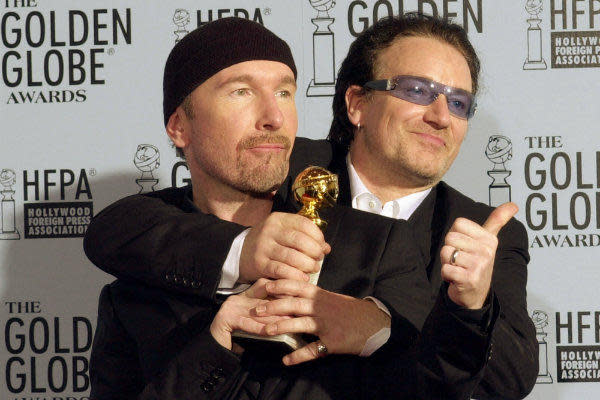Supreme Court Knocks Down FCC Indecency Rules in Fox Case, Ducks First Amendment Question
The Supreme Court on Thursday vacated the FCC's rules on "fleeting expletives" and brief nudity, saying it had not given networks adequate notice of its policies and that they were overly vague. It ducked the question of whether the rules were allowable under the First Amendment.
The case -- FCC vs. Fox Television Stations -- was the result of challenges from Fox TV and other broadcasters to the FCC’s decision in 2004 to adopt a stricter standard regulating off-color language on broadcast television. The Supreme Court agreed to combine its review of the Fox case with a separate FCC indecency case stemming from the appearance of actress Charlotte Ross’ bare buttocks on a 2003 episode of ABC’s “NYPD Blue.”
"Because the commission failed to give Fox or ABC fair notice prior to the broadcasts in question that fleeting expletives and momentary nudity could be found actionably indecent, the commission's standards as applied to these broadcasts were vague," the court said in an 8-0 ruling.
Also read: Supreme Court to Decide if FCC Can Fine Networks for Language, Nudity
The court's decision Thursday leaves the FCC free to modify its rules -- and detail them for networks.
The FCC adopted the tougher standard -- barring the utterance of even “fleeting” indecencies on air -- in the wake of public complaints about several high-profile incidents, including Janet Jackson’s breast-baring wardrobe malfunction during the 2004 Super Bowl half-time show.
Though it was one of the factors that played into the FCC's adoption of stricter standards, the Jackson incident was not part of the case, which covers only expletives -- specifically the use of the F-word by celebrities during Fox’s 2002 and 2003 broadcasts of the Billboard Music Awards shows.
During the first year’s awards show, Cher used the F-word. During the following year’s broadcast coverage, Nicole Richie used the F-word and joked about challenges of getting “cow s--- out of a Prada purse.”
Also in 2003, U2 rock star Bono said "f---ing brilliant" during NBC’s coverage of the Golden Globes Awards.
Also read: FCC Renews Its Battle to Oversee Indecency
In the "NYPD Blue" matter, the FCC fined dozens of ABC TV network affiliates a total of more than $1 million for airing the episode.
In 2009, the Supreme Court ruled that the FCC had followed the proper procedures in broadening its policy in 2004 to ban even fleeting indecencies. But the high court did not decide whether the agency’s indecency prohibitions violated the constitution.
The following year, the U.S. Court of Appeals for the Second Circuit in New York held that the FCC’s policies banning “fleeting expletives” were unconstitutionally vague.
In addition, the appellate court overturned the ABC fines over the nudity during “NYPD Blue” show. Both Fox and ABC have been contending that the FCC’s indecency regulations violate the First Amendment.
The Obama administration asked the Supreme Court to review the appeals court’s decisions.
In April, the Obama administration also asked the Supreme Court to review a federal appeals court decision throwing out a $550,000 FCC indecency fine levied against CBS over the Janet Jackson incident.
The Third Circuit federal appeals court in Philadelphia tossed out the fine last year, contending that the FCC’s effort to enforce a beefed-up indecency standard in the CBS case was arbitrary and capricious.
More Supreme Court news on Yahoo!



